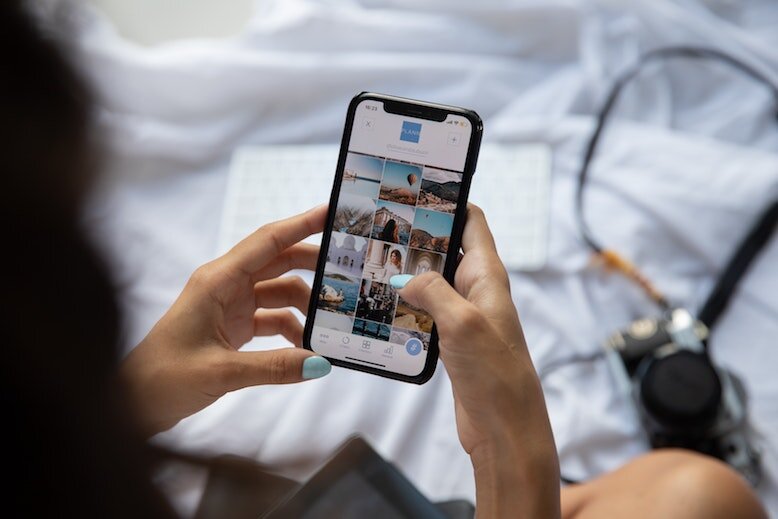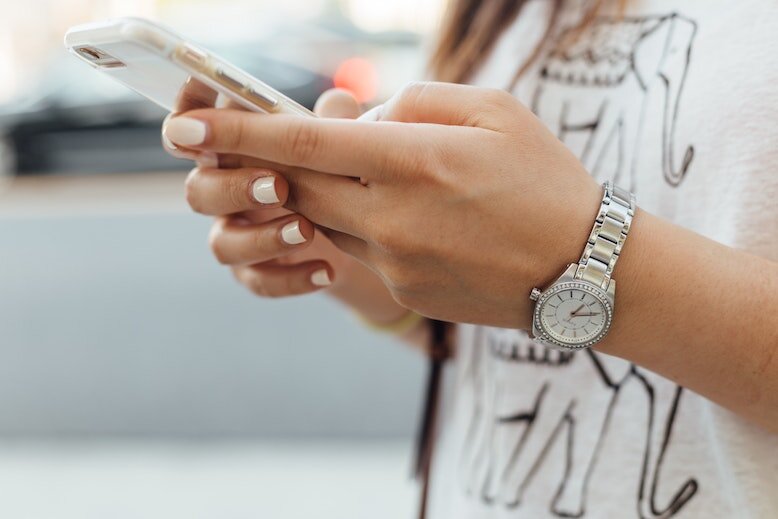You’re probably more dependent on your phone than you’d like to think; most of us are. That little shiny brick is home to our contact list and vacation photos — often without backup. It’s also where we get constant updates on what’s happening around us, from who just got engaged in our circle to what the latest stay-at-home guidelines are. When you’re all alone, you’ve got a friend in your phone. Feeling bored? Just watch a cute cat video, and then another and another and another. But all this dependence isn’t your fault. You’ve been set up to behave this way.
Apps on our phones, especially social media and gaming ones, are designed to be addicting. Having a super personalised feed may seem like a good thing, but getting an endless stream of engaging content will likely keep you glued to your phone. Many are doing a digital detox for this reason. Some quit social media, others completely did away with their phone.
However, these methods are not always practical. Most of us need to use our phone and tune in to social media for work and to stay connected with loved ones, especially during a pandemic. So what now?
The benefits of digital maximalism

(Photo from: Plann via Unsplash)
In Hamlet’s BlackBerry: A Practical Philosophy for Building a Good Life in the Digital Age, author William Powers talks about digital maximalism. It’s when you maximise your digital presence in hopes of reaping maximum benefits from social media. You sign up not just for personal use but also for professional growth. Simply put, it operates on the assumption that the more connected you are, the better.
Think about why you’re on LinkedIn. You may not always use it, but having a profile there opens you up for potential opportunities and connections. Right now, most of us are digital maximalists even though we’re not aware of it. We have accounts on websites and apps that we may have already forgotten, and we leave them there — just in case.
Believe it or not, there’s a real benefit to this. “I think signing up to and exploring different social media platforms and apps is beneficial. Different social media and apps give access to different types of entertainment,” said Senior Brand Assistant Roan Guzman who is active on many social media sites and admits that it’s a guilty pleasure of hers. “I get to also get to watch vlogs, tutorials about everything and anything under the sun and a lot more. And I get to have access to current events and news in an instant. Social media also alerts me to different job opportunities.”
Meanwhile, threads on Reddit are full of heartfelt stories from strangers, dating apps help us meet people we would never have encountered in real life. In theory, it makes sense to be a digital maximalist. What could you lose from being connected, right? Well, something valuable.
The argument for digital minimalism
While William Powers presented the ways digital maximalism has enriched our lives, he also argued that we may be losing something that’s equally valuable, and that is depth. “Depth of thought and feeling, depth in our relationships, our work and everything we do. Since depth is what makes life fulfilling and meaningful, it’s astounding that we’re allowing this to happen,” he wrote. It’s good to note that his book was published in 2010, long before the smartphone became ubiquitous, but his argument is still relevant a decade after.
Today, we talk about how dating has become “shallow” and transactional, how the way we’re perceived on social media has become so important that we edit ourselves to “perfection”, how we share articles without reading the full story and so on. When we think about these things, it suddenly makes sense to throw away our smartphones and live like it’s 1995. But don’t. There are ways to curb your digital use without sacrificing your connectivity.
How to get the best of both worlds
Extremes are rarely a good thing, including digital use. So here are some of the things that have helped people to find a happy balance between digital maximalism and digital minimalism.

(Photo from: Paul Hanaoka via Unsplash)
1. Turn off your notifications and don’t expect instant replies
Instructor and blogger Gel Ebron is trying to do a digital detox. She emphasised that “trying” is the keyword because she constantly struggles to minimise her phone use after realising that she spends 10 hours a day staring at it. “I keep failing at it but I do still try again. It's hard to actually stay away from social media since it's the only way I communicate with people,” she said. “There’s the feeling that I need to be constantly on my phone because I'm talking to some people.”
What has helped her the most? Putting her phone on “do not disturb” mode and the mentality that messaging doesn’t have to be instant. “I always tell people that it will take me a while to reply from time to time and that I don't expect instant replies myself,” Gel said. “People don't really need immediate replies unless it's an emergency and if it were an emergency, they'd probably call me.”
2. Let go of the pressure to constantly share
As an influencer, Shine feels she has somewhat of a responsibility to post as much as she could. “I could say there was a time I had experienced this (negative mental health effects from social media use) and it really gave me anxiety. I felt so tired and felt burnt out,” she said. She realised she needed to step back and let go of the pressure and began to post only when she needed to share something and not the other way around. Shine spent more time with friends and opened up to them. “I knew I had to breathe a little, relax a little. I stopped pressuring myself to post every day. I opened up to my friends and talked to them about how I felt at that time and it did help me so much to feel better again,” she said.
3. Set a time for social media
Even Roan, who enjoys the perks of being a digital maximalist, admitted that she’s experienced some negative mental health effects because of it as well. She’s able to stay connected online while maintaining that elusive depth and focus by setting aside a specific time for social media use. “My phone has a setting wherein I can limit my screen time per day, so I utilise that feature to be able to strictly control my social media use,” she said. By doing this, she’s still focused on one thing instead of constantly lingering on her phone.
These minor adjustments are not dramatic. They’re not as exciting as putting away your phone in a locked container. They’re not as intriguing as choosing to disappear from the digital space. But they work. The little things truly make a difference.
(Cover photo from: Paul Hanaoka via Unsplash)
Next, find out about the four hard rules of navigating social media.
Comments, questions or feedback? Email us at [email protected].





.png)


